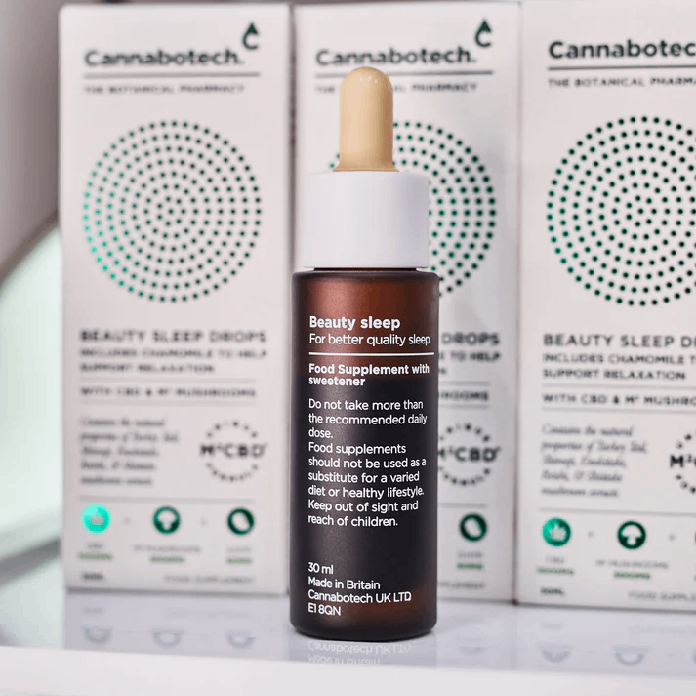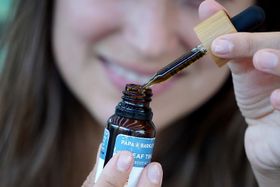Will Taking Lion’s Mane Before Bed Help You Sleep?
Updated September 20, 2023.

Functional mushrooms and other traditional Eastern medicines are a rising topic of conversation in the west among avid supporters of alternative medicine and pharmaceuticals. As the frequency of discussions surrounding these mushrooms has increased, so too has the abundance of different mushroom types, all promising slightly different benefits to various degrees.
This article looks at whether taking Lion's Mane mushroom (Hericium Erinaceus) before bed can treat insomnia and help you get better sleep.
Effects of Lion's Mane Mushrooms on Sleep
Currently, few studies have looked into the effects of Lion's Mane mushrooms on the brain and cognitive health. However, they are not totally absent. One such study found that Lion's Mane mushrooms had a positive effect on mood-related disorders such as anxiety, stress, and sleep issues.
Another study found the same effects but noted that Lion's Mane mushrooms were effective at lessening the degree of sleep apnea symptoms in obese patients with high blood pressure. Sleep apnea is a disruptive condition that causes sufferers to stop breathing during sleep, significantly impacting the quality of their rest, particularly during the deep phase of sleep called REM (rapid eye movement) sleep. This suggests that Lion's Mane mushrooms may be beneficial for the phase of the normal sleep cycle that helps with neurological rejuvenation.
Will Lion's Mane Mushrooms Make You Sleepy?
People often fall victim to the fallacy of believing that cause and effect follow a linear pattern. Sleeping tablets make you sleepy, regardless of when you take them; therefore, taking Lion's Mane mushrooms should make you sleepy since they positively affect sleep, right?
Wrong. The reason why functional mushrooms can sometimes help you sleep better is totally different from pharmaceutical sleeping tablets.
The benefits of Lion's Mane mushrooms for sleep come from their supposed adaptogenic properties that lead to stress and anxiety relief, and stimulate neuronal and cognitive health, which indirectly aids sleep in a different way to knocking you out with a sleeping pill. Taking them in the middle of the day won't make you sleepy, nor will taking them at night keep you awake.
How Quickly Does Lion’s Mane Work?
A popular question on the topic of functional mushrooms, many people wonder whether the results of Lion's Mane may be felt immediately or only after a few hours. Unfortunately, it's not that simple.
The benefits of adaptogenic Lion's Mane mushrooms are accumulative, unlike pharmaceutical sleeping pills. This means that you likely won't feel the benefits until after you've been taking them for a few days to over a month. While this may be discouraging for some, it has the advantage of not needing an optimal time of day to take them. What matters more than precision is consistency, taking them every day until they begin to work for you.
Are There Side Effects to Taking Lion's Mane for Insomnia?
Unfortunately, no studies have looked directly at the risks and side effects of Lion's Mane mushrooms. However, from the body of evidence we have, they appear to be relatively safe. But, individuals who have mushroom allergies will likely have allergic reactions to all types of mushrooms, including Lion's Mane, which could lead to difficulty breathing, skin rashes, or gastrointestinal issues.
No research has found Lions Mane mushrooms, or any mushrooms for that matter, to have addictive properties.
How to Take Lion's Mane for Insomnia
Since these functional mushrooms can be beneficial for sleep issues, it might seem like the best time to take them would be at night. However, since these benefits come from overall stress relief and improved cognitive functioning throughout the day, the best time to take them varies from individual to individual, as does the recommended dosage.
There are various ways to consume Lions Mane mushrooms, such as:
Add a Scoop to Your Drink
For maximum benefit, some researchers suggest adding a scoop of dried and powdered Lion's Mane mushroom to a cup of coffee or making Lion's Mane mushroom tea and drinking it in the morning for an energizing boost and reset to your circadian rhythm. Lion's Mane is neither a stimulant nor contains caffeine, making it a great accompaniment to your morning wake-up beverage.
Take Extracts and Supplements
You can also consider taking Lion's Mane mushroom extracts or supplements in the form of capsules.
As with other supplements, it's best to consume Lion's Mane alongside food instead of on an empty stomach. However, it's unlikely that you'd experience adverse reactions if you are a healthy individual and don't adhere strictly to this rule.
Cook With Dry or Fresh Lion’s Mane
Additionally, the dried or fresh mushrooms can be cooked into food for a tasty health boost.
For more info about the nutritional benefits of Lions Mane mushrooms, read Is Lion’s Mane Mushroom a Nutritious Superfood?
Take Lion's Mane With CBD and Other Mushrooms
Adaptogenic mushrooms can often be taken together with other beneficial mushrooms to maximise their benefits. Furthermore, functional mushrooms work well with pharmaceutical-grade non-psychoactive cannabidiol (CBD), which forms the basis of our unique M2CBD formula that combines these therapeutic ingredients with other natural compounds in easy-to-use tinctures, sprays, and topical creams.
Lion's Mane works well with CBD oil and other mushrooms in order to help you fall asleep easier and stay asleep throughout the night, both improving your sleep quality and reducing the symptoms of sleep deprivation.
For more info on this topic, read CBD and Functional Mushrooms for Sleep: Benefits, Side Effects, Usage, and More.
Who Should Not Take Lion’s Mane?
As a final thought, it's important to note that, even though these adaptogenic mushrooms appear to have several positive health benefits, there are still those who should be wary of incorporating them into their lives. Namely, if you either:
- Have a mushroom allergy.
- Are pregnant or breastfeeding.
- Have bleeding disorders.
If you have further concerns, a registered doctor won't hesitate to give you more insight as to whether this particular mushroom is safe for you or not.












